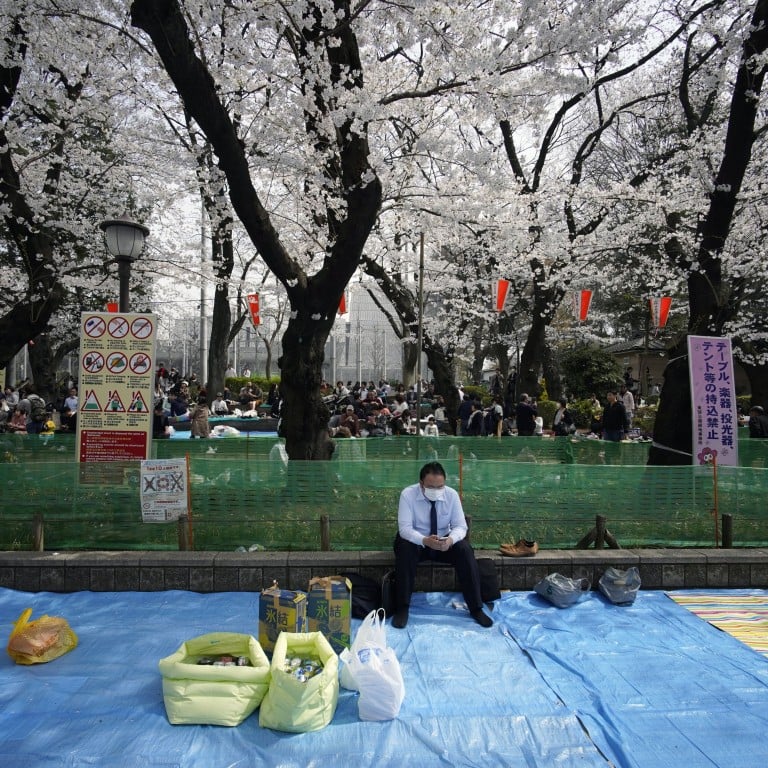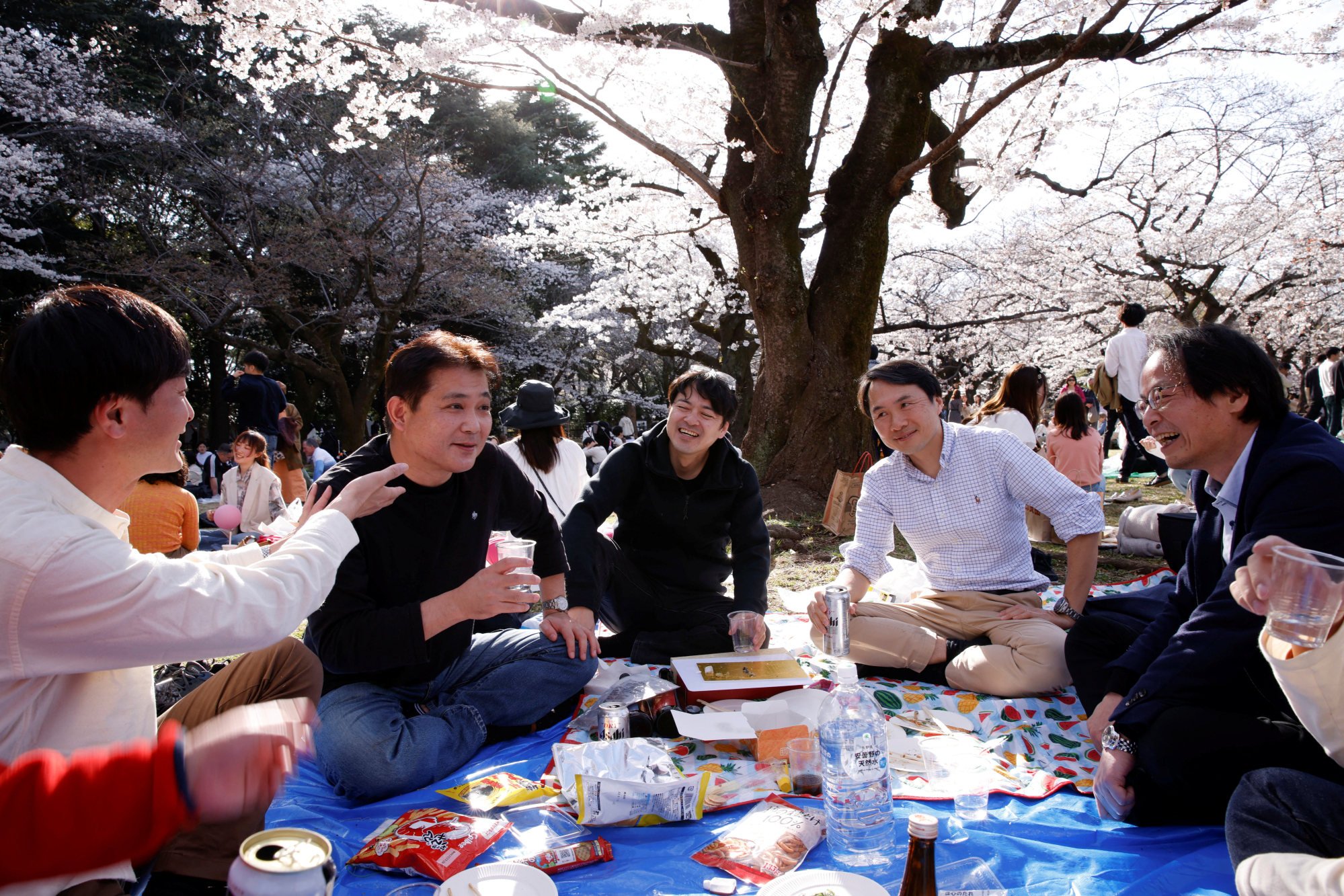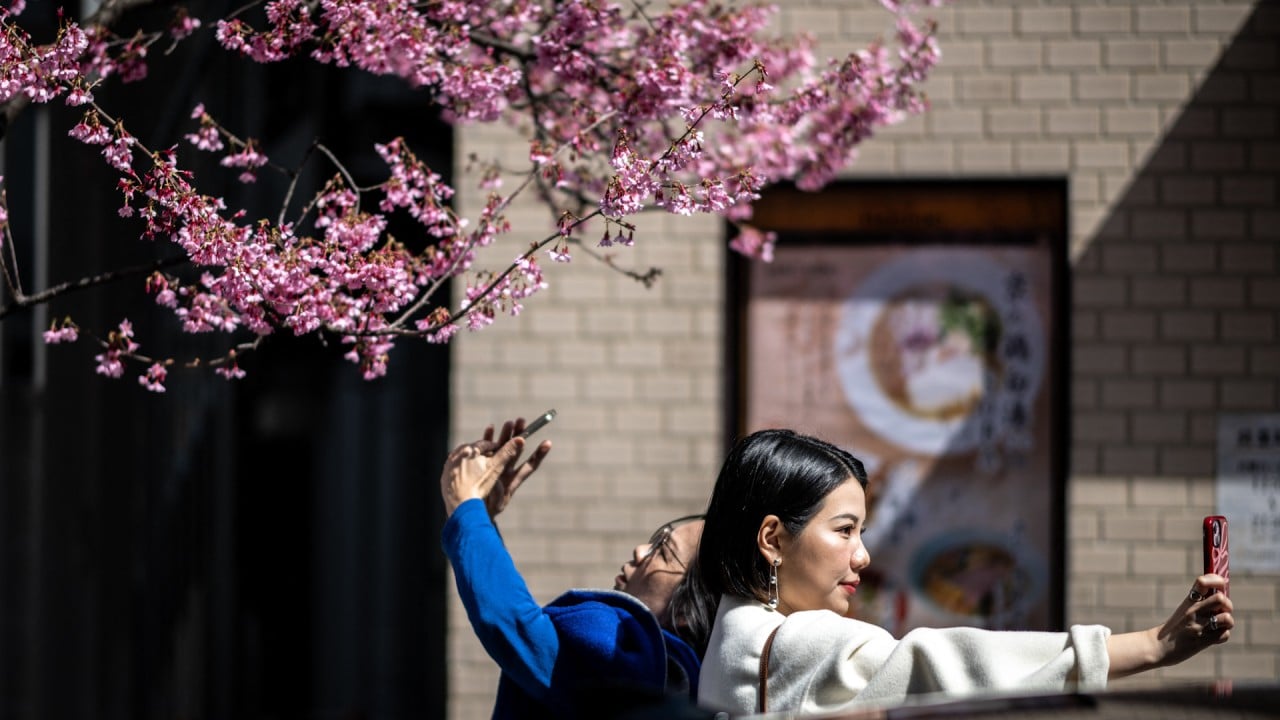
Cherry blossom blues: why 60% of Japan’s workers want to skip the office ‘hanami’ party
- Sixty per cent of respondents said they would rather not attend their company’s ‘hanami’ parties
- Respondents said they felt obligated to attend the annual revelries and that they were like an extension of work
With the cherry trees about to flower in Japan, employees across the country are preparing for the annual ritual of the company hanami, or cherry-blossom viewing party with coworkers. However, a new report indicates that the majority of people are only attending out of a sense of obligation and would really rather be somewhere else.
An online study conducted by Job Soken, the research unit of career consultancy firm Laibo Inc, revealed that fully 60 per cent of respondents did not want to take part in the revelries, which mark the arrival of spring, primarily because they see it as an extension of their work.
Kaori, who works for a well-known company in the travel sector, says she is looking forward to hanami season – but has no intention of partying with her work colleagues.
“The weather is looking good for this weekend and all of next week, so the blossoms will be out very soon, but I will not be celebrating with people from my office,” she said.
“I really prefer a smaller gathering with close friends and family, the people I choose to be with,” said Kaori, who asked that her family name not be used. “Hanami is something I do in my private time so it’s for friends and family.”
Sakura bye bye? Popular Japan cherry blossom variety facing extinction
“I guess hanami parties could be seen as a team-building exercise at some companies, and I understand that, but I do not want to spend my time drinking and singing karaoke with people from my office,” she said.
Plenty of Japanese agree with that sentiment, according to Job Soken’s study, with more than 51 per cent of people saying they prioritized their private life over work matters and 47.6 per cent saying they do not want to use their limited vacation days for a work-related event.
The study’s 606 respondents were encouraged to give multiple reasons for why they did not want to take part in hanami with office colleagues. Another one cited by more than 40 per cent is that they were “tired of paying attention to other people.”
Around 60 per cent of those who said they would be taking part in a hanami party with coworkers said it should be considered an extension of work.
Perhaps surprisingly, support for company hanami was highest among employees in their 20s, with slightly over 55 per cent saying they were in favour of a knees-up with colleagues. Staff in their 40s were the least enthusiastic, with nearly 70 per cent opposed to the idea.
The tradition of parties to admire the cherry blossoms can be traced all the way back to the Nara Period, between 710 and 794, and may have originated in the Chinese custom of writing and reciting poetry beneath plum blossoms. Admiring the later-blooming cherry trees subsequently became fashionable among the members of the imperial court before spreading to the nobles, samurai and, eventually, the commoners.
In recent decades, it has become an excuse for public revelry in a nation where such behaviour is often frowned upon, with large parks in major cities attracting thousands of party-goers gathered on tarpaulins to over-eat, drink too much and perform karaoke.
Sumie Kawakami, a lecturer at Yamanashi Gakuin University, said she would not be attending a hanami with work colleagues this year but would be catching up beneath the blossoms with some friends from her sports club.
“I can certainly see why these events are becoming less appealing to many people, but especially for women,” she told This Week in Asia.
“Traditional gender roles effectively mean that the women are expected to prepare the food for the party and there is an unwritten code of conduct in place that, if the food is bought instead of being hand-made, the woman ‘cheated’.
“There are lots of other similar demands for company hanami, with the youngest new recruit in the office typically expected to take a tarpaulin big enough for everyone to the park first thing in the morning and stake out the best spot. Then he or she has to stay there, to protect the space, until everyone finishes work and the drinking begins.
“I am very lucky that I’m not going to anything like that and I’ll be meeting up with friends for a smaller and quieter celebration,” she added.

In another twist on the tradition, the study indicates that, despite the end of the coronavirus pandemic, fewer companies and organisations are resurrecting the spring get-together.
Just 11.3 per cent of those taking part in the study said their employer was planning a company-wide event, down sharply from 49.3 per cent of firms in 2019, the last hanami season before the pandemic. That figure is even lower than the 11.3 per cent of firms that held parties in 202o and 13.1 per cent in 2021, at the height of the health scare.


